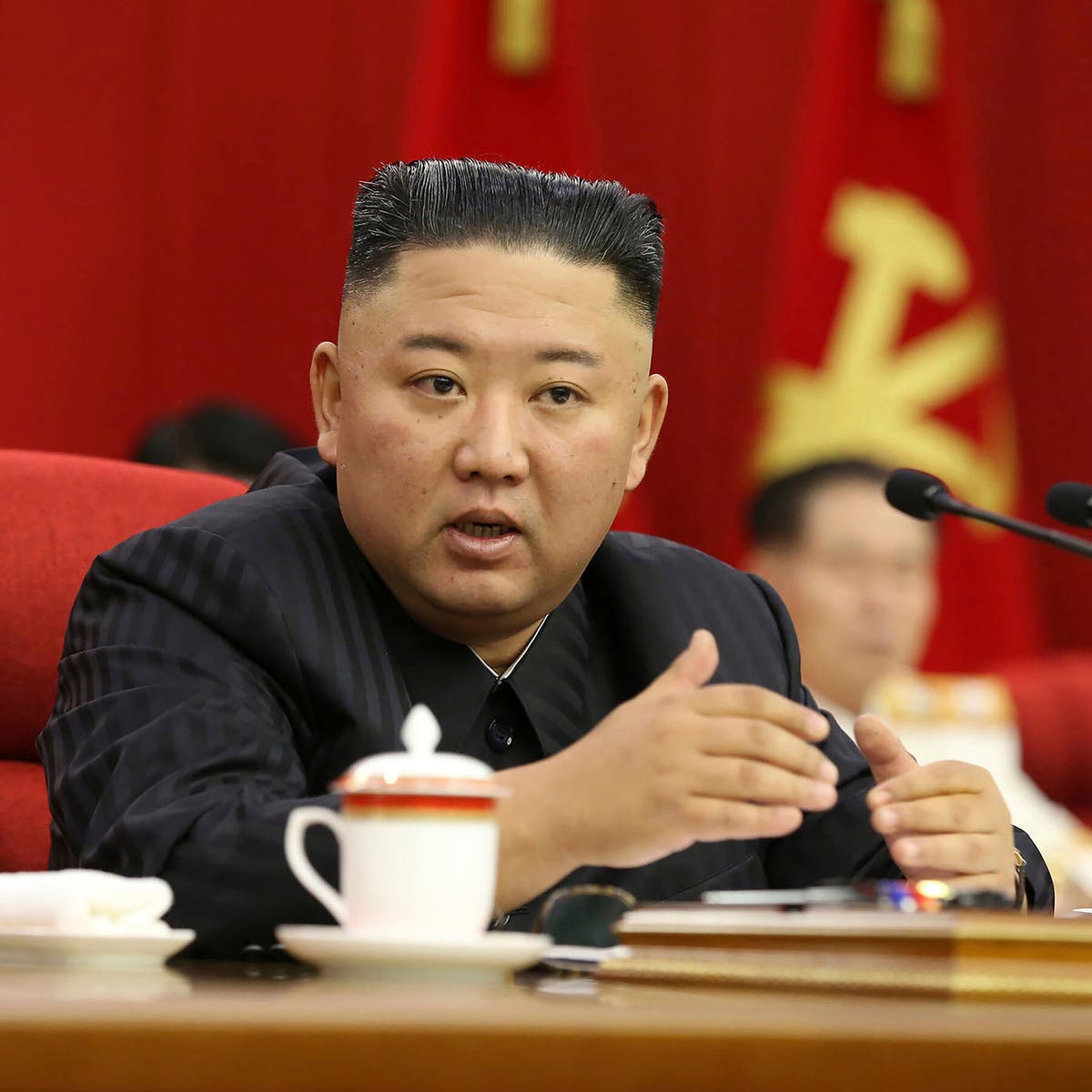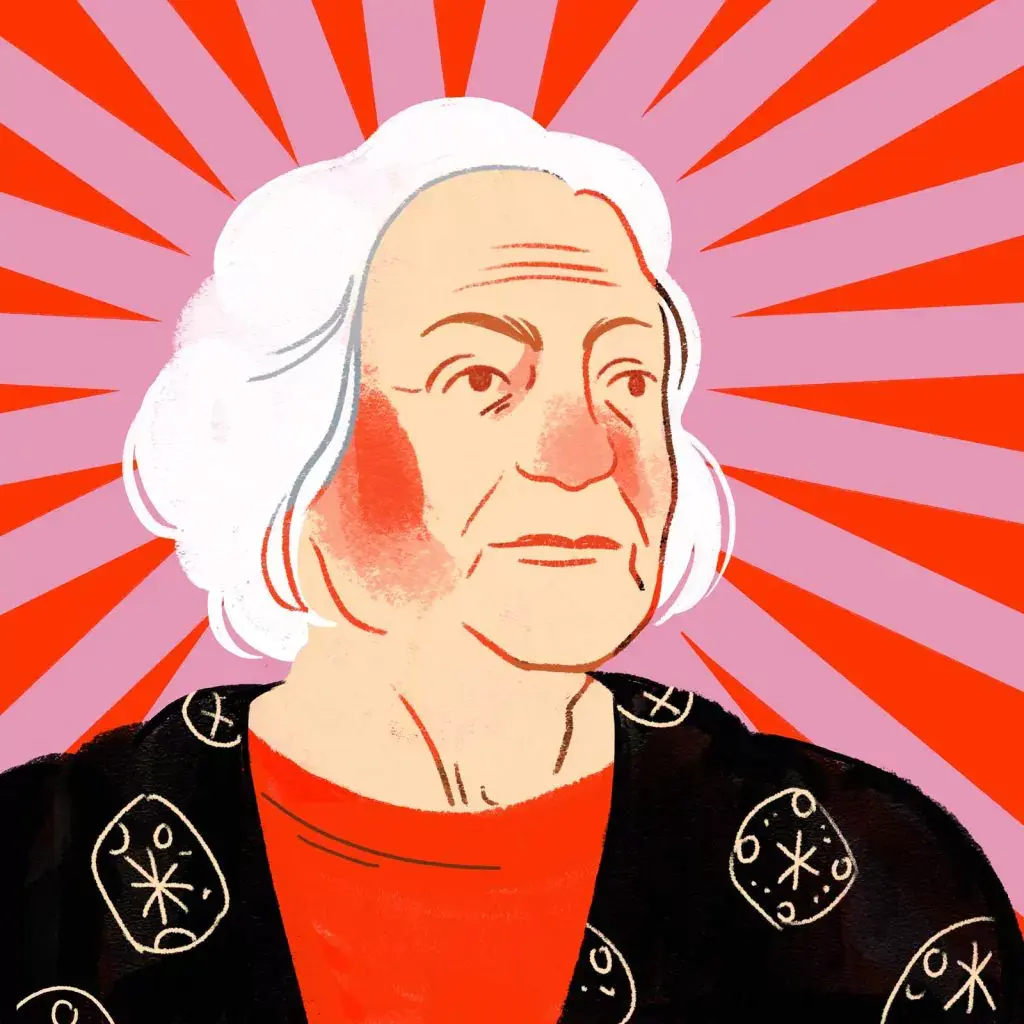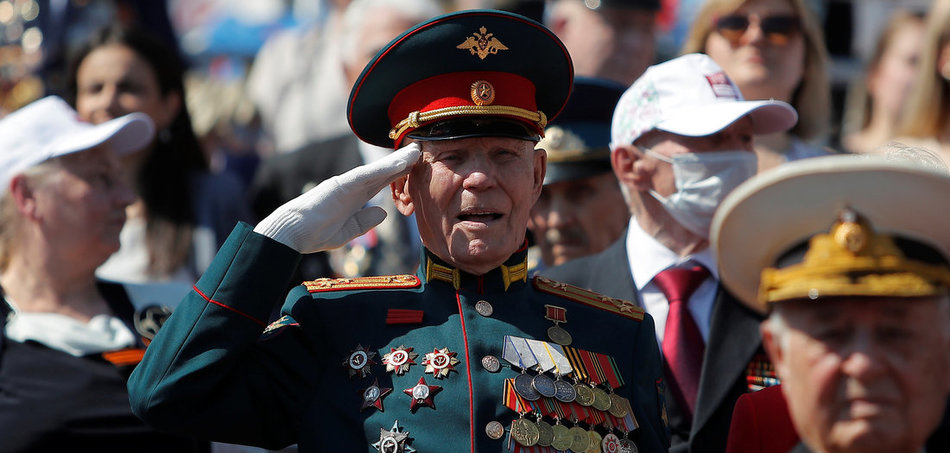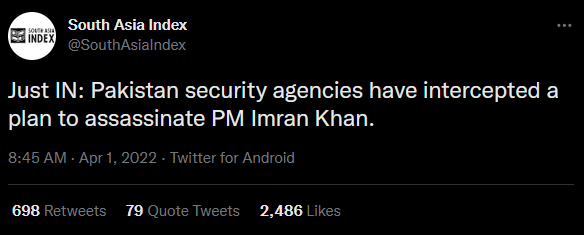How I got here:
spoiler
As some of you might remember, a couple weeks ago I made a post asking for resources on the role of the students in class struggle. I didn't get much, because, as I found out in further research, though there surely is a whole lot of material on it, most of it probably isn't digitized. So I asked some studied older comrades irl. That yielded some results. One of them suggested a lecture by Clara Zetkin from 1924 on the question of the intellectuals. I actually found this almost forgotten speech somewhere in a corner of the web. Great, I thought, let's translate it - doesn't seem that long, should be available for the English speaking comrades and makes me read the text much more deeply. And I did start...
until I realized, a good few hours in, I still wasn't even half way done. Well, turns out this 'fairly short speech' actually is over 13k words long.
I'll still finish it, but I thought it would be much more engaging to just do it and share it piecemeal with the comrades online.
What's the text about:
As the title says, it's a historical materialist analysis of the role of the intellectuals in class struggle. But it is so thorough, it too develops or at least formulates a very early commentary on the just emerging fascism, on imperialism, on the question of women and much more. It's long for a speech, but it's incredibly insightful, comprehensive, is a highly interesting snapshot of the discussions in the communist world movement in 1924 and a very good example of how to conduct historical materialist analysis.
Clara Zetkin today is, unfortunately, a mostly forgotten figure outside of the German far left, even though she was one of the most important members of the German communist movement, of the KPD, an incredibly important figure for the women's movement and all round absolute giga chad who should be remembered at least as much as Rosa. I strongly urge everyone to at least read her wikipedia article. The woman had a theory of fascism as a distinct phenomenon less than 2 years after Mussolini seized power.
How's this gonna work:
I'll release the text in (probably) 4 parts, every 2-3 days from now. I'll make a new thread for each part. Whoever feels compelled to read and discuss along can just use the thread for the part. I'll try to be as active and to answer as many questions about it as I can, though I'm using this as an opportunity to really study Zetkin for the first time myself.
The translations are works in progress. I wont post total beta versions, but they will not be 100% refined
So without further ado
Part I:
spoiler
Clara Zetkin: The intellectual's question
(7th July 1924, Lecture before the V. Congress of the Communist Internationale)
CLARA ZETKIN: Comrades! Sadly I have to begin my lecture with an appeal for apologies. I'm momentarily not very healthy and therefore forced to leave out some of what I'd have to say in my lecture. You will therefore percieve gaps, but I hope to be able to fill these in later.
Today the intellectual's question is starting at us from tens and tens of thousands of hungry eyes. It's also screaming at us from the distress of tens and tens of thousands, who in the needs of life, in the needs of this time lost the previous ideal, a supporting internal power are not able to understand their personal experience and suffering in connection with the grand historical developments and to derive energy from it. But in addition to the misery of the intellectuals, which has heightened to the intellectual's crisis, we see another phenomenon: The crumbling face of bourgeois cultur in its death throes. The crisis of the intellectuals too is the crisis of mental labour in bourgeois society. The intellectual's crisis is facing us today in all the capitalist countries, to differing extents of course, with differing force, but is in the historical sense and the direction of development the same everywhere. We too see it in the socialist Soviet states, because there capitalism has been toppled politically, but the transformations of society towards communism are still in their infancy, and on top of that under the greatest difficulties.
The intellectuals' question shows itself ultimately as the crisis of mental labour and the culture of bourgeois society itself. It announces to us that bourgeois society is no longer able to be the keeper, developer of its own culture. And with this the intellectuals' question stops being a question of merely the intellectuals or of bourgeois society. It becomes a question of the proletariat, for it is its historical mission to develop all forces of production, of culture beyond the limits set by bourgeois society. If the proletariat wants to fulfill this task, it is faced with another: It has to give account to itself about the relation between the basic forces of historical becoming. On this later.
The intellectuals' crisis and the crisis of mental labour are a symptom of the deep and incurable disruption of the capitalist economy and the state based on it, the society it supports. The crisis of mental labour doesn't just show itself as a symptom of the nearing end of capitalism, but as part of the crisis of capitalism itself. In the Soviet states it is an expression of the remaining large gap between the political power conquered by the proletariat and the ramifications of this power via the dictatorship of the proletariat in the transformation of production and the ideological construction of society towards communism. All in all the crisis of mental labour and the intellectuals' crisis proves that there's a strong tension between the already far advanced process of disruption and dissolution of the bourgeois order and the process of the construction of communist production and culture.
The intellectuals' crisis reveals that it is not the social contradiction between manual and mental labour which determines the economic condition and social standing of the intellectuals. To many it seems that it is defining for the lot of the intellectuals, the class position of the proletariat seems to prove it. But this assumption is faulty. The social contradiction between mental and manual labour, between intellectuals and proletarians has its roots in the fact that mental labour can't be replaced by a machine, that the mental labourer requires a longer period of vocational training. The mental labourer can thus not be drilled, "trained" as quickly for the exploitation-relations of capitalism as the manual labourer.
But the social contrast, which results from this for the intellectuals to the proletariat, is only of secondary and temporary character. It steps back behind the defining fact which is the real basis for the social contradiction between manual and mental labour. That is the contradiction between property and human, between capital and labour, framed socially: the contradiction between rich and poor, between exploiters and the exploited, that social contradiction which found its classic historical expression in the class antagonism between bourgeoisie and proletariat. The fate of the mental labourer is by no means defined by strong talents or the acquired knowledge and skill in slow, tedious study, but ultimately by the contradiction between capital and labour. The intellectual finds himself in the society of capitalist commodity production, he is subject to its written and unwritten laws. In it he got transformed from a producer of cultural-values into either a seller of "commodities", similar to an artisan, so called as "freelancer" or he enters the market as "salary reciever" like the proletarian, as seller of his own commodity, the commodity labour, to devote to bourgeois culture in service of capitalists, in service of the state. Whether the intellectual is a seller of his produce or seller of his commodity labour, no matter whether as petty bourgeois or as proletarian, he is dominated by the contradictions of the capitalist market. In the "Communist Manifesto" Marx already pointed to this in shining sentences with all sharpness, that the scholar, the artist today is nothing but a trader, a commodity-seller.
The mental labourers find themselves, as consequence of their economic relation to capital, not, as they often tell themselves, in an irreconcilable contradiction to the proletariat, they are not at all solidly and intimately connected to the bourgeoisie in social terms. The opposite is true. The intellectual is in reality connected to the proletarian via his opposition to capital; he is irreconcilably divided from the bourgeoisie by his role as small commodity seller or seller of his commodity labour. In whatever form he enters the market as seller, he will be subjugated, the large capitalist will triumph over him. The worry about a piece of bread makes him as unfree as the proletarian of manual labour. The exploitation, the bondage he experiences is nothing but a particular form of the exploitation and bondage of every form of labour by capital. As a consequence the exploitation and bondage of mental labour can only be destroyed when the power of capital is broken, the private ownership of the means of production is done away with and replaced by collective ownership. Only through proletarian revolution can the intellectual, like the manual labourer, gain his freedom. His higher interest demands that he fights on the side of the proletariat the struggle for the overcoming of capitalist production and bourgeois class-domination.
Generally this is not the case. On the contrary. The intellectuals fell strongly and solidly connected to bourgeois society. This is explained by the development of the intellectuals as a separate social class, the type of the one-sidedly trained professional, as he fits the conditions of capitalist production with its division of labour and the atomized structure of bourgeois society with its division of social functions. The emergence of the mental labourers as a separate social class is intimately tied to the development of capitalist production and bourgeois class-society. At the beginning of capitalist production stand the achievements of science, of technology, of the great seafarers. Without the discovering and inventing scholar and technologist, without the organizing, scientifically calculating merchant, without the daring seafarer the development of capitalist production is unthinkable. But as science and technology, as organizing and administering were crucial factors for the emergence of capitalist production, inverse capitalist production had the greatest influence on the funding and development of the sciences, namely the natural sciences. Chemistry you can downright call a science of capitalist production. Thanks to that it developed from the phantastical gold-seeking of the medieval ages to a transformative science. The same is true for electrical engineering and other technical disciplines. The bourgeoisie couldn't have lifted production above the limits of feudal science without the most extensive and crucial participation of the mental labourers.
Only the bourgeoisie needed the intellectuals for the purpose of its political and social domination. Only with their aid did it become possible, on the basis of the developing new relations of production, to transform the ideological superstructure of feudal society into bourgeois society. The bourgeoisie as a property owning class was able to, even in the frame of the feudal order, ascend to a culture that surpassed the one of the old ruling powers and bound the intellectuals solidly to it. Those became its vanguard, its pioneers in the fight against the ideological space of feudal society and its privileged classes: Church, nobility and absolutist principality. The intellectuals forged and wielded the mental weapons for the overthrow of these bonding and exploiting powers. Their spokespeople in their struggle first reached back for the bible, to the sciences and arts of antiquity; later the primary weapon became English rationalism and especially the philosophy of the encyclopaedists. Intellectuals stood as pioneers, as leaders at the forefront of all reform-movements and revolutionary movements that transformed feudal society into the bourgeois order.
Likewise intellectuals were leaders of the most important social-revolutionary sects and peasants movements. The fight of the intellectuals liberated science, art, culture from the chains of feudal society and transformed them from servants of the ruling classes of that order into servants of the bourgeoisie, in transformative forces of bourgeois society. Art and science were "effeminated". The work of the intellectuals for the development of the capitalist economy, for the emancipation and the class domination of the bourgeoisie became ever more significant, the more the bourgeoisie strengthened due to capitalist production, and the more its position of domination solidified even in the frame of feudal society, till it finally emerged as the ruling class through revolutionary struggle. Thus grew the tasks and the importance of the intellectuals for the development of the economy. But so too grew the pressing powers for the transformation of the ideological superstructure, for the creation of a political power-apparatus which the bourgeoisie needed to push through and consolidate as the ruling class. The mental labourers were not only organizers and directors of the capitalist mode of production, they too provided the bourgeoisie for its state and its organs the necessary forces for its legislation, its administration: for all the areas and institutions affected by the bourgeoisie's need for domination over the not and little owning classes and especially over the proletariat.
But the bourgeoisie did not reward the intellectuals according to the measure of their historic significance for class domination. It too forgot that it was the intellectuals who created the ideology of bourgeois liberalism and bourgeois democracy, which so long chained and deceived the workers. The bourgeoisie has at every time only valued the intellectuals in so far as they produced immediate surplus. The intellectuals that didn't, the ones performing other societal functions, to the bourgeoisie count as "unproductive workers'', as futile eaters. Especially the great national-economists of the emerging bourgeoisie, Adam Smith and Ricardo, left no doubt that in the eyes of the bourgeoisie productive work is achieved by those who live to increase capital, but not those who live off of the income from capital. Adam Smith eg explained:
"Very respectable classes of society achieve as little productive work as the served." And as such "respectable classes of society", which his equated with the served, he listed: The landlords, the officers of the army and navy, the entire army-apparatus, the lawyers, the doctors, other scholars too, finally even opera-singers, actors, poets and ballet-dancers. From this described standpoint has the bourgeoisie looked down upon the mental labourers as an inferior class of futile eaters. Only once the surplus value, which the bourgeoisie extorted from the proletariat, became extraordinarily significant, it allowed itself the luxury of tossing crumbs of its wealth to the "unproductive" intellectuals, who were not immediately involved in the service of production. The low assessment of the intellectuals by the bourgeoisie got its historical expression in that the mental labourers, who created the ideological superstructure of bourgeois society, the ruling ideology, often hungered and lacked. They had to put themselves under the protection of small princes and princelets; they were forced to accept meager, often churchly, positions, despite their free-spiritedness; they bore the servitude of house-teachers, they had to flee to the salons of aristocrats. The history of the bourgeoisie and its fight for emancipation or more accurately of its emancipation fighters in England, France, Germany proves this.
The intellectuals did not draw the necessary consequences from this significant disregard of their achievements. They did not feel divorced from the bourgeoisie, but as part of the bourgeoisie itself. They lived in the delusion, that as "free"lancers they represented "free" science, "free" art, a "free" culture. And many of them still do. How can this be explained? Within the intellectuals a social stratification took place that is much more important than the usual superficial tripartition: in privately employed and private clerks, employees and clerks in service of the state, in public service, and freelancers. The uppermost strata of intellectuals got close to the bourgeoisie or originated from it. A minority had worked up into or had "strived up into" the bourgeoisie from outstanding positions in the production-process, in the state, in various areas of cultural life. Beneath these privileged stratas spread a broad class of intellectual existences, who lived in traditional petty bourgeois complacency, but also in petty bourgeois constriction, in economic as well as cultural relations. Beneath both of these stratas there was a third group of mental labourers, who had neither luck nor fortune, who permanently teetered on the border of the lumpenproletariat and often sank down into it. Because this is characteristic for the lot of the intellectuals: If he can't assert himself in a mere or privileged position in proximity to the bourgeoisie, he doesn't fall down into the working proletariat, but the lumpenproletariat. At least the intellectuals had in bourgeois society - compared to the living conditions, to the social position of the working-class - a privileged position. As a result they felt divorced from the proletariat.
The interest of the bourgeoisie in profit and accumulation, the interest of domination of the bourgeoisie in state and society could very well not accommodate a privileged position of the mental labourers in the long term. After its historical being it had to strive to break the privileged position of the intellectuals. And it did break it. It did break it by creating the equilibrium between the supply of mental labour and the demand for it.
It had contributed to the better social position of the intellectuals, that the development of construction of culture in general was suffering from the chains and limits of feudal society even long after the political emancipation of the bourgeoisie.
The number of intellectuals available to the bourgeoisie for the purpose of production and its rule wasn't large. The bourgeoisie requires a larger staff of scientists and engineers, who dedicated their strength to the blossoming of production; it requires a higher culture to command over all kinds of mental state-slaves to justify and underpin its rule ideologically. It needed to have a surplus of mental labourers. A period of foundings, of blossoming of higher educational institutions began, the elementary school-system too had been lifted. The consequence was an overproduction of mental forces, meaning a relative overproduction. Overproduction only existed insofar as more intellectuals emerged from the educational institutions than the bourgeoisie needed for the interests of its profits and rule. There was nothing less than overproduction when thinking about the enormous demand for culture of the broad masses. The bourgeoisie now had the required reserve-army to bring down the pay of the mental labourers, to worsen its conditions. It took full advantage of that.
The social tripartition of the intellectuals, which I mentioned earlier, had become sharpened, the differences deepened. The number of mental labourers sharing in the bourgeoisie's splendor, glory and luxury became relatively fewer and fewer, though growing in absolute terms. To what extent the ratio of the second and third group changed isn't statistically measurable. The gentlemen reformists, with Bernstein at the head, in the pre-war period concluded from the strong growth of the intellectuals in economy and state the development of a "new middle-class", which would form a new rampart of the bourgeoisie against the proletariat. According to this theory numerous mental labourers would move up socially. The correctness of this opinion hasn't been proven by all statistical figures. Not the lowness or height of salary or wage alone determine the social condition of the different stratas of the intellectuals. Something else adds to it: The accustomed to standard of living, the share in material and cultural opportunities which the intellectual can afford for his wage. From the standpoint one has to conclude the worsening condition of the intellectuals in all the regions and in different countries.
The intellectuals' question arose. For bourgeois society it was Medusas' head. It announced that this society had become unable to secure the mental labourers a social standing according to its professional occupation, one that matched its former "befitting" standard of living. The first characteristic mass-phenomenon emerged as proof of the intellectuals' question having arisen in bourgeois society. It was the tedious, passionate fight of the mental labourers against the higher education and employment of women. What was behind the ideological platitudes of the professors, doctors and other fools who took the field against women's emancipation? Primarily nothing but fear of competition. The fight for education and employment of women showed two things: First, that bourgeois society was unable to secure the intellectuals an income allowing to uphold the old "befitting" familial relations. The family in these circles could no longer grant women their livelihoods, nor a serious, dutiful purpose in life. Second, that the mental labourers shied away from the opinion that higher education and employment of women would worsen their own social condition. Facts prove this. In old Russia e.g. the fight for higher education and employment for women hadn't been - as in Western Europe - between men and women, but a fight between different generations, between fathers and sons, between the old ideology of the feudal, despotic order and that liberal ideology of rising bourgeois society. Now, that the intellectuals' crisis reached an unexpected height, the fight against employment of women, in the years before the war almost dormant, has broken out again with highest intensity not only in the "beaten" states, but also in the victorious countries, eg in the US, where the fight for equality for women celebrated its first big victories. Today in some circles there is a rather large counter-tendency against the spread of employment of women dominates certain circles (teachers etc). It is said:
"Each step forward for women is a step backwards for men."
But another mass-phenomenon proves the development of an intellectuals' question in bourgeois society. Since about the 80s of the past century social reformists of various kinds emerge - like an epidemic illness: podium socialists, land reformers, pacifists, ethicists, Neo-Malthusians, sexual reformers etc. What's characteristic of these social-reformist tendencies? The one shared trait is that most reformers suddenly are discovering the social question and with it the giant shape of the fighting proletariat beginning to move revolutionarily. The position of the intellectuals between the classes, its hybrid position between the two big classes of society, which are gearing up for a general resolution between labour and capital, lets the reformists act as preachers of class-reconciliation. They're urging the bourgeoisie and the proletariat to make peace. That's new and characteristic. Apart from exceptions, earlier societal-reformers mostly just hoped for insight and contemplation of the owners and rulers.
The reformers reject class-struggle, they reject above all revolution. They expect everything from reason, as much on the side of the exploiting bourgeoisie as on the side of the exploited and desiring proletariat. The reformist tendencies, which the intellectuals' question affects, get their characteristic expression in Germany, country of "theory", of podium socialism and its manyfold scientific and dilettantic varieties. In France, country of "politics", they affect the increasing trend to dress bourgeois-radical parties in more or less social decorations. Bourgeois parties emerge calling themselves democratic-socialist, radical-socialist or however, the main thing is the word "socialist" has to be in there. The most shining representative of this tendency in France was our comrade Jaurés. He developed from it continuously into a socialist. The vestiges of bourgeois democracy, bourgeois ideology he could still never fully shake off. In England the classic expression of the reformist movements, which developed in connection with the intellectuals' question, is the Fabian Society, so called constructive socialism, as is represented in the Labour Party, especially by intellectuals in it. In every capitalist country the intellectual social-reformers influence the labour aristocracy and its most radical offshoots had their ideas in the opportunism and reformism of the workers-movement.
Whatever program these reform-enthusiastic intellectuals developed, they agreed not to touch the foundations of the bourgeois order, not to abolish private ownership and thus not class domination and class antagonism, for whose alleviation they gushed. But the gentlemen needed a basis to make the implementation of their reforms possible. A straight line of development leads from the social-reformers to imperialism. On imperialism Cecil Rhodes, the famous English imperialist, made a characteristic statement: "Imperialism or revolution!" Indeed, that's the way things were. Bourgeois reformers, who wanted to carry out their social reforms to ban revolution, but not at the expense of the holy profits, the domination-basis of the bourgeoisie, had to look for a different economic basis for reforms. They found it outside of their home-countries, in the exploitation of the colonial and semi-colonial peoples, whose ruthless, inhuman plundering and servitude brought supernormal profits, from which the capitalists paid the crumbs of union concessions and social reform they carried out for the "Volksgenossen" [lit. "peoples-comrades", nationalist term for compatriots] in the mothercountry. But another motive was essential for the social reformers to become champions of imperialism. That was the concern for their own existence. In the fatherland many mental labourers no longer found profitable employment, an existence befitting their station. The colonies offered them the perspective of a shining, respected career, for a safe, high income, for adventure and glory. No wonder, as things were, that imperialism found its most passionate advocates right among the intellectuals. From the night watchman to the minister, from the village-school principal to the university professor, from the unknown reporter of a daily paper to the scholarly researcher, everyone discovered imperialism and descended as its champion "down to the people".
As the intellectuals earlier were the creators of bourgeois, national ideology, now their younger generation provided the creators of the ideology of imperialism, advocates of dilettantic race-theories, justifying all the contradictions and atrocities of colonial politics; intellectuals became the most fanatical agitators and organizers of imperialism, the most cruel practical representatives of the exploitation and servitude of the peoples in capitalist colonies and half-colonies. Intellectuals proved that in the plundering and enslavement of the colonial peoples they were able to combine the entire hideous brutality of the conquistadores from the time of primal accumulation of capital with the whole refinement of modern cultural- and gentle-men.
The intellectuals together with the heavy and finance capitalists in every country bear the highest responsibility for the arms race, for the breakout and the length of the world war. If there are people, beside the grand bourgeois, beside the reformist social-traitors, drenched from top to bottom in the blood of 4 years of slaughter, it's the intellectuals who preached the "greater fatherland". As carriers of the imperialist thought they caused that mass-exhortation, that mass-deception that allowed the arms race of all the so called culture-nations. They created that fateful mass-psychosis under the influence of which the war could be endured for years. It is a historical nemesis that there's hardly a social class who's been hit harder by the consequences of the world war as the class of intellectuals. Because none of the various powers, for whose triumph they prayed and cursed, remained as victor of the world war. The only victor was the grand bourgeoisie of all the countries, the vanquished in truth and deed were, in the victorious and beaten states, the proletariat and petty bourgeoisie and with them too the mental labourers. For their economic condition the expropriation of the petty and middle bourgeoisie by the grand bourgeoisie intertwined with the pauperisation by it.
Part 2 will expand on the crisis of the intellectuals, their worsening material conditions and how that leads to fascism
Hope this is helpful to someone, if not at least there's an English version of it online.






Can't mess with big bad Belarus